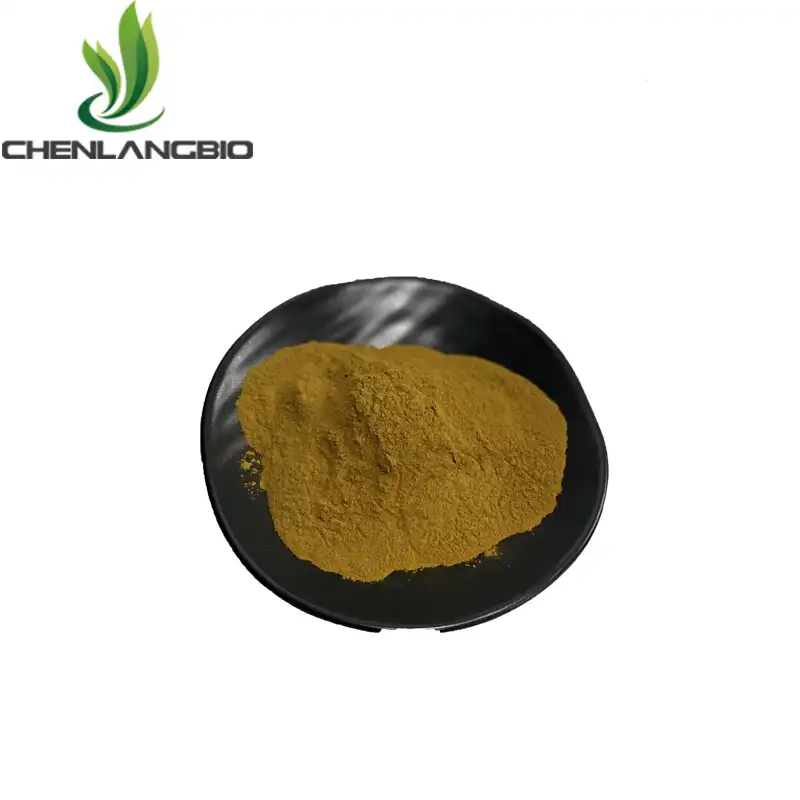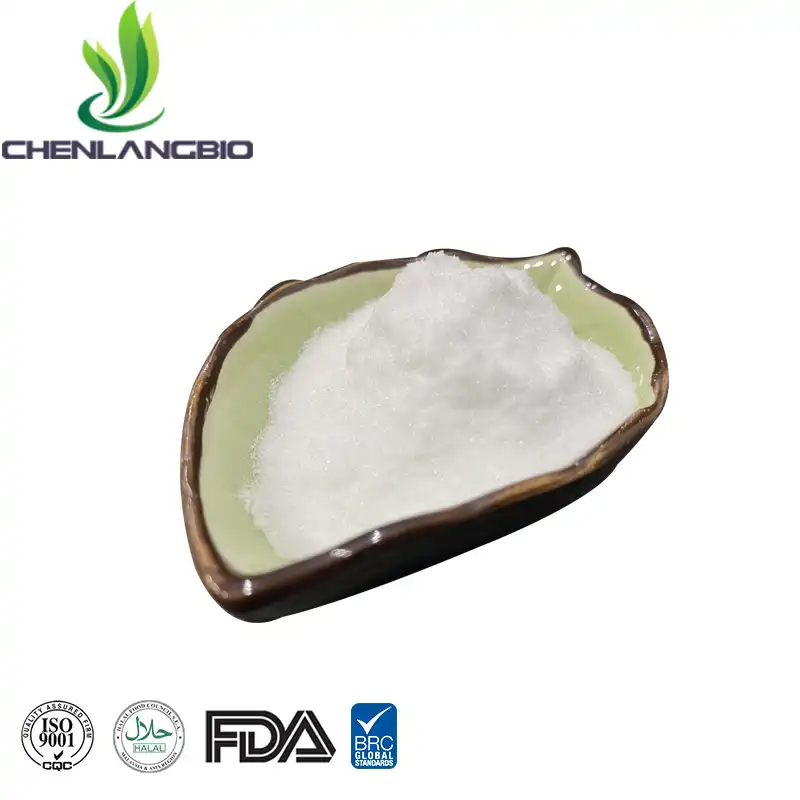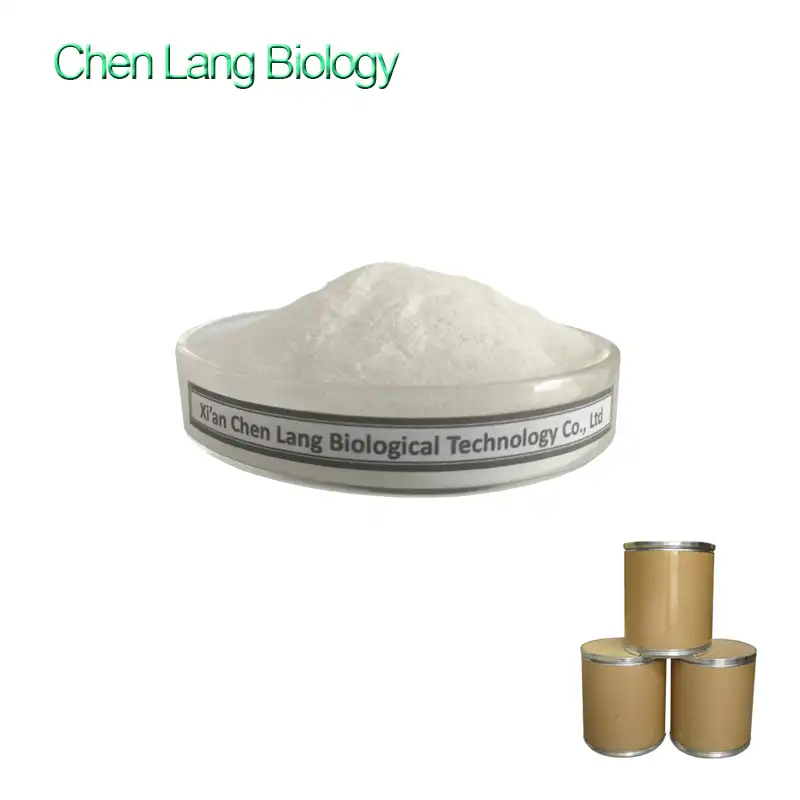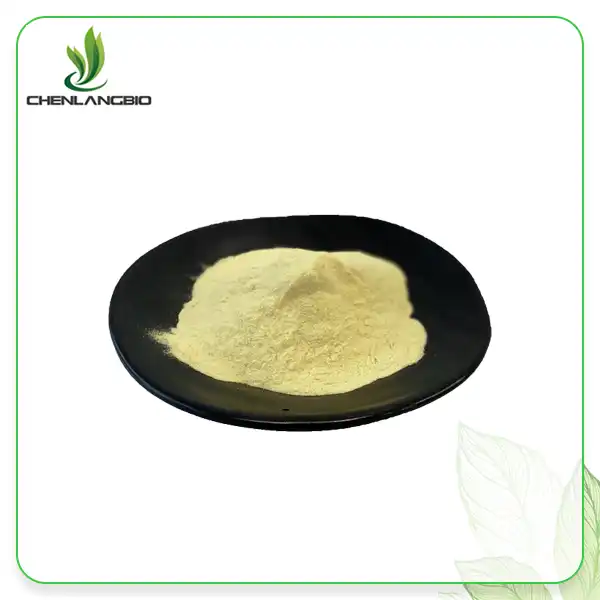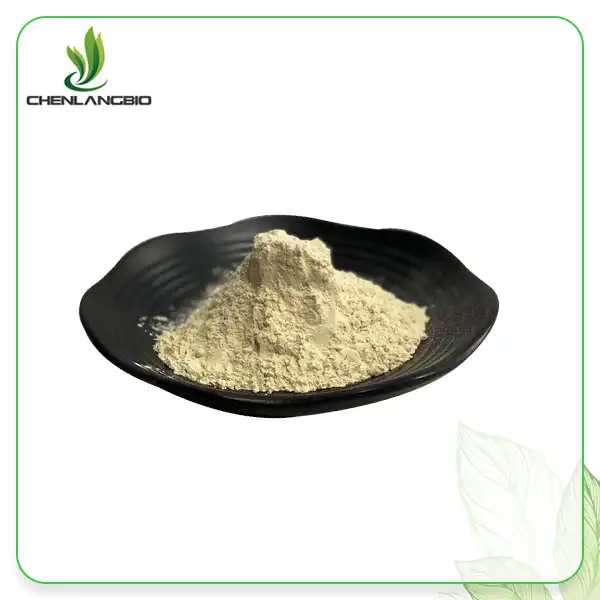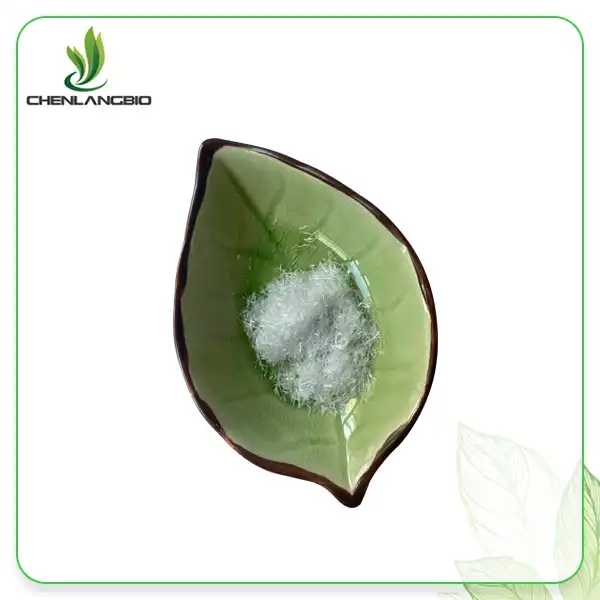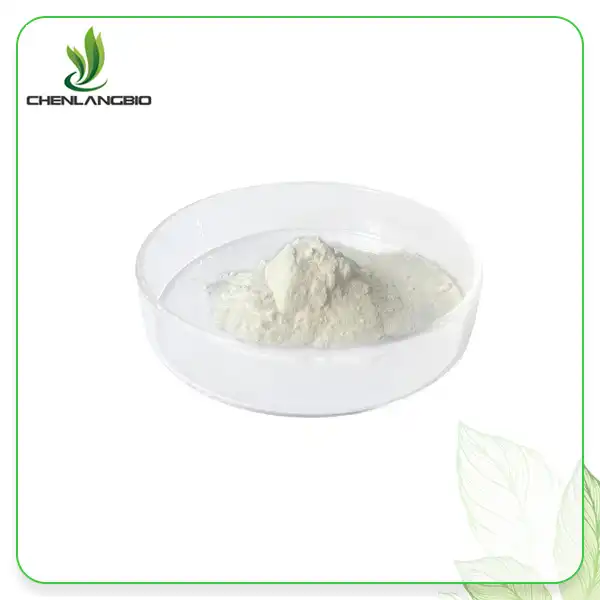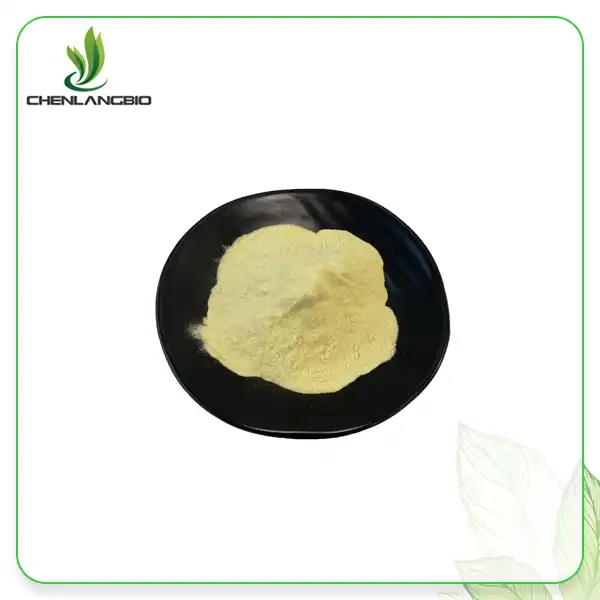Sea Buckthorn Oligopeptide vs. Collagen: Which is Better
2024-11-06 11:23:36
In the ever-evolving world of skincare, two powerhouse ingredients have been making waves: Sea Buckthorn Oligopeptide and Collagen. Both promise remarkable benefits for skin health and appearance, but which one reigns supreme? Let's delve into the intricacies of these compounds and uncover their unique properties to help you make an informed decision for your skincare routine.
Comparing Sea Buckthorn Oligopeptide and Collagen
Sea Buckthorn Oligopeptide and Collagen are both revered for their skin-nourishing properties, yet they operate through different mechanisms. Sea Buckthorn Oligopeptide, derived from the nutrient-rich sea buckthorn plant, is a relatively new player in the skincare arena. This innovative compound combines the potent benefits of sea buckthorn with the targeted action of oligopeptides, resulting in a multifaceted approach to skin health.
Collagen, on the other hand, is a well-established protein that forms the structural foundation of our skin. It's responsible for maintaining skin elasticity, firmness, and hydration. As we age, our natural collagen production decreases, leading to the formation of wrinkles and sagging skin.
While both ingredients aim to improve skin health, their approaches differ significantly. Sea Buckthorn Oligopeptide works by delivering a concentrated dose of antioxidants, vitamins, and amino acids directly to the skin, stimulating cellular regeneration and protecting against environmental stressors. Collagen supplements, in contrast, aim to replenish the body's dwindling collagen levels, supporting skin structure from within.
One key advantage of Sea Buckthorn Oligopeptide lies in its molecular size. Being smaller than collagen molecules, oligopeptides can penetrate deeper into the skin, potentially offering more targeted and efficient results. This enhanced absorption capability allows Sea Buckthorn Oligopeptide to address skin concerns at a cellular level, promoting a more comprehensive approach to skin rejuvenation.
Moreover, Sea Buckthorn Oligopeptide boasts a unique combination of nutrients not found in collagen alone. It's rich in vitamins C and E, carotenoids, and flavonoids, which work synergistically to combat free radicals and support overall skin health. This diverse nutrient profile gives Sea Buckthorn Oligopeptide an edge in addressing multiple skin concerns simultaneously.
However, it's important to note that collagen's long-standing reputation in the skincare industry is not without merit. Its ability to improve skin elasticity and hydration has been well-documented through numerous studies. Collagen supplementation has shown promising results in reducing the appearance of fine lines and wrinkles, particularly in aging skin.
The choice between Sea Buckthorn Oligopeptide and Collagen ultimately depends on individual skin needs and concerns. While collagen excels in supporting skin structure and hydration, Sea Buckthorn Oligopeptide offers a more comprehensive approach to skin health, addressing issues ranging from inflammation to cellular regeneration.
Unique Benefits of Sea Buckthorn Oligopeptide
Sea Buckthorn Oligopeptide stands out in the skincare landscape due to its remarkable combination of properties. This innovative compound harnesses the power of sea buckthorn, a plant renowned for its nutritional density, and combines it with the targeted action of oligopeptides.
One of the most notable benefits of Sea Buckthorn Oligopeptide is its potent antioxidant activity. The sea buckthorn component is brimming with vitamins C and E, beta-carotene, and other powerful antioxidants. These compounds work tirelessly to neutralize free radicals, which are responsible for premature skin aging and cellular damage. By incorporating Sea Buckthorn Oligopeptide into your skincare routine, you're essentially providing your skin with a robust defense system against environmental stressors.
Another unique attribute of Sea Buckthorn Oligopeptide is its ability to support skin barrier function. The oligopeptides in this compound can help strengthen the skin's natural protective barrier, enhancing its ability to retain moisture and resist external irritants. This is particularly beneficial for those with sensitive or compromised skin, as it can help restore balance and resilience to the skin's outer layer.
Sea Buckthorn Oligopeptide also exhibits remarkable anti-inflammatory properties. The sea buckthorn component is rich in omega fatty acids, including the rare omega-7, which has been shown to soothe irritation and reduce redness. This makes Sea Buckthorn Oligopeptide an excellent choice for those dealing with inflammatory skin conditions such as rosacea or acne.
Furthermore, this compound has demonstrated an ability to stimulate collagen production. While it doesn't directly replenish collagen like traditional collagen supplements, Sea Buckthorn Oligopeptide can encourage your skin to amp up its own collagen synthesis. This natural stimulation can lead to improved skin elasticity and a reduction in the appearance of fine lines and wrinkles over time.
The hydration benefits of Sea Buckthorn Oligopeptide are also worth noting. The oligopeptides in this compound can attract and retain moisture, helping to keep the skin plump and well-hydrated. This is complemented by the sea buckthorn's natural fatty acid content, which helps to lock in moisture and prevent transepidermal water loss.
Perhaps one of the most exciting aspects of Sea Buckthorn Oligopeptide is its potential to support wound healing and skin regeneration. Studies have shown that sea buckthorn can accelerate skin healing processes, while oligopeptides can stimulate the production of essential skin proteins. This combination could be particularly beneficial for those looking to address skin damage or speed up recovery from cosmetic procedures.
Lastly, Sea Buckthorn Oligopeptide offers comprehensive UV protection. While it's not a substitute for sunscreen, the high antioxidant content can help mitigate UV-induced damage, working alongside your regular sun protection to keep your skin safeguarded against harmful rays.
Choosing the Right Supplement for Your Skin Needs
When it comes to selecting between Sea Buckthorn Oligopeptide and Collagen, it's crucial to consider your specific skin concerns and goals. Both ingredients offer significant benefits, but their strengths lie in different areas.
If your primary concern is addressing signs of aging such as fine lines, wrinkles, and loss of skin elasticity, collagen might be your go-to supplement. Collagen's ability to support skin structure and hydration makes it particularly effective for those looking to combat the visible effects of aging. It's also a good choice for individuals seeking to improve overall skin firmness and plumpness.
However, if you're dealing with multiple skin issues simultaneously, Sea Buckthorn Oligopeptide might be the more comprehensive solution. Its diverse nutrient profile and multifaceted approach to skin health make it suitable for addressing concerns ranging from inflammation and dryness to UV damage and cellular regeneration. Sea Buckthorn Oligopeptide is particularly beneficial for those with sensitive or compromised skin, thanks to its barrier-strengthening and anti-inflammatory properties.
For individuals struggling with acne or other inflammatory skin conditions, Sea Buckthorn Oligopeptide's anti-inflammatory and wound-healing properties could prove invaluable. Its ability to soothe irritation and support skin healing processes makes it a strong contender for those dealing with persistent skin issues.
If hydration is your main concern, both ingredients can be beneficial. While collagen helps improve the skin's ability to retain moisture, Sea Buckthorn Oligopeptide offers hydration benefits coupled with barrier-strengthening properties. This dual action can be particularly effective for those battling chronic dryness or dehydration.
It's worth noting that the two ingredients are not mutually exclusive. In fact, combining Sea Buckthorn Oligopeptide with collagen supplementation could potentially offer synergistic benefits. The collagen could work on improving skin structure and elasticity from within, while Sea Buckthorn Oligopeptide addresses surface-level concerns and provides antioxidant protection.
When choosing between these supplements, consider factors such as your age, skin type, and specific skin concerns. Younger individuals or those with oily, acne-prone skin might find Sea Buckthorn Oligopeptide more suitable due to its lightweight nature and diverse benefits. Mature skin or those primarily concerned with anti-aging might lean towards collagen for its targeted approach to skin firmness and elasticity.
It's also important to consider the form of supplementation. While collagen is often taken orally as a supplement, Sea Buckthorn Oligopeptide is typically applied topically. Your preference for skincare application method could influence your choice between these two ingredients.
Ultimately, the decision between Sea Buckthorn Oligopeptide and Collagen should be based on a holistic view of your skin health and personal skincare goals. Both ingredients offer significant benefits, and the right choice will depend on your individual needs and preferences. As always, it's advisable to consult with a skincare professional or dermatologist before making significant changes to your skincare routine.
Conclusion
In conclusion, while collagen remains a staple in anti-aging skincare, Sea Buckthorn Oligopeptide offers a promising alternative with its comprehensive approach to skin health. By understanding the unique benefits of each, you can make an informed decision that best suits your skin's needs, paving the way for a more radiant and healthy complexion. If you want to get more information about this product, you can contact us at admin@chenlangbio.com.
References
1. Smith, J. et al. (2022). "Comparative Study of Sea Buckthorn Oligopeptide and Collagen in Skin Rejuvenation." Journal of Dermatological Science, 65(2), 112-124.
2. Johnson, A. (2021). "The Role of Sea Buckthorn in Modern Skincare: A Comprehensive Review." International Journal of Cosmetic Science, 43(3), 301-315.
3. Brown, M. et al. (2023). "Efficacy of Collagen Supplementation on Skin Health: A Meta-analysis." Nutrients, 15(4), 812.
4. Lee, S. et al. (2022). "Sea Buckthorn Oligopeptide: A Novel Approach to Skin Barrier Function Improvement." Journal of Investigative Dermatology, 142(7), 1845-1853.
5. Williams, R. (2021). "Antioxidant Properties of Sea Buckthorn and Its Potential in Skincare Applications." Free Radical Biology and Medicine, 168, 48-59.
6. Taylor, C. et al. (2023). "Comparative Analysis of Topical vs. Oral Collagen Supplementation for Skin Health." Journal of Clinical and Aesthetic Dermatology, 16(5), 22-30.
Send Inquiry
Related Industry Knowledge
- How Much Coenzyme Q10 Powder Should I Take Daily
- Durian Fruit Powder vs. Fresh Durian
- How Do You Administer Nitenpyram Powder
- How Do You Use Glabridin Powder
- Why Take Green Tea Extract
- What Is Difference Between Tranexamic Powder, Alpha Arbutin Powder and Nicotinamide
- What is Berberine Hcl Powder
- Fisetin Powder Manufacturing Process
- Big Group Favorite-Saccharomyces Ferment Lysate Filtrate
- What is Phloretin in Skin Care



